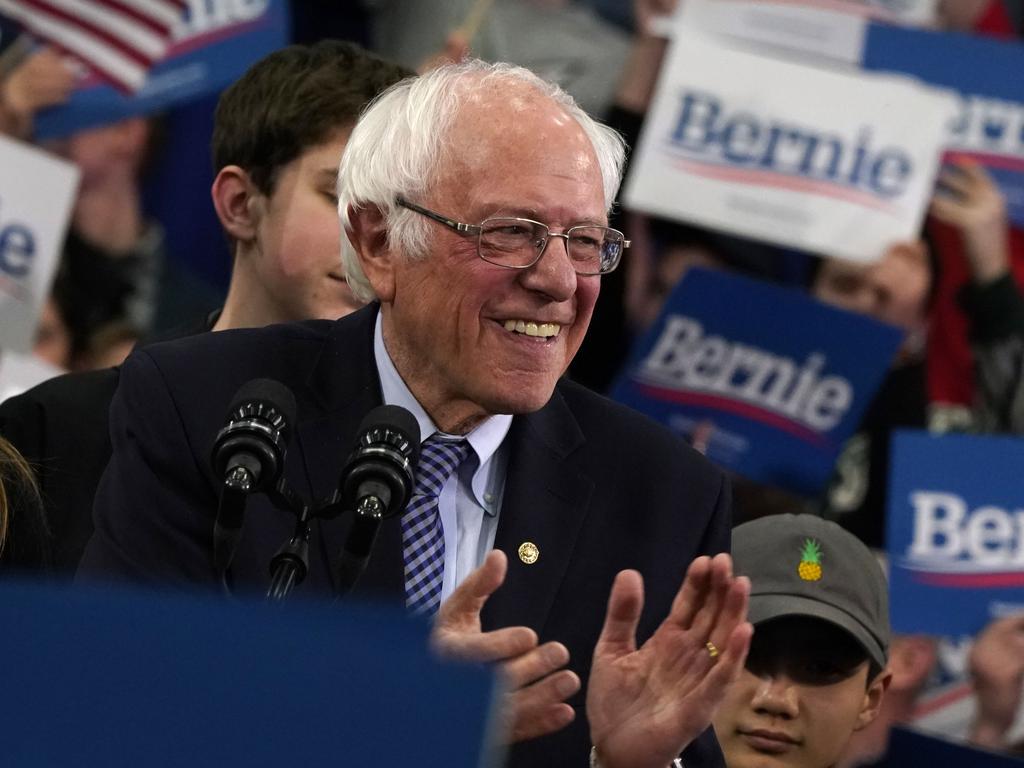Lessons for party still struggling to find its identity


Yes, Bernie Sanders won the important New Hampshire primary, and yes, he is now the frontrunner in the race. But the Democrats may not be ready for a socialist candidate just yet.
The self-described democratic socialist was on virtual home turf in New Hampshire, which sits next to his home state of Vermont.
In 2016, Sanders thumped Hillary Clinton here and polls suggested he would win this state comfortably this time around also.
Instead, the 78-year-old has three moderate Democrats breathing down his neck and now realises that this race is far from over. A stronger-than-expected performance by moderates Pete Buttigieg and Amy Klobuchar, and the looming challenge by fellow moderate Michael Bloomberg, has Sanders feeling the heat.
The liberal and moderate wings of the Democratic Party are set for an epic showdown.
Yet several key lessons can be drawn from the outcome in New Hampshire.
The first is that the campaign of the former frontrunner Joe Biden, who came a distant fifth with just 8.4 per cent per cent of the vote, appears to be doomed.
Biden maintains that the game is not over and that he will stage a comeback in bigger and more racially diverse states where his polls are stronger.
But campaigns are all about momentum and right now Biden has none. The former vice-president, the great hope of Democrat moderates, is now on the cusp of a stunning failure.
The second lesson of New Hampshire was the blow it dealt for senator Elizabeth Warren, the other big-spending liberal in the race with Sanders. She came fourth with only 9.4 per cent.
To understand the challenge facing Biden and Warren, the Democrats have never nominated a candidate who did not finish first or second in New Hampshire. Both would have to defy history to win the nomination from this position.
With almost all votes counted, Sanders won the state with 26 per cent support from Buttigieg on 24.4 per cent, followed by Klobuchar on 19.8 per cent.
The third lesson of New Hampshire is that Klobuchar is not out of the race, despite previously registering in only single figures before this poll.
Klobuchar is a strong debate performer with a sense of humour and a moderate message that has increasingly resonated with voters.
But the race now enters a more complex phase, as primaries take place in states with greater ethnic diversity than the very white states of Iowa and New Hampshire that kicked off the primary race.
This poses a significant challenge to both Buttigieg and Klobuchar, who poll poorly among African-Americans.
Sanders’s campaign is underpinned by broad support from progressive Democrats across the country and, unlike Buttigieg and Klobuchar, he does not struggle to attract minority voters.
The result in New Hampshire seems to confirm that Sanders has won the battle with the 70-year-old Warren for the votes of the party’s liberal progressive wing so if Warren pulls out, Sanders is also likely to win the vote of many Warren supporters.
Moderate Democrats fear that Sanders is unelectable with such a left-wing agenda and are horrified that he could potentially be their party’s nominee.
This Democrat race is turning out to be a battle between both wings of a party that is still struggling to find its identity.




The fight for the Democrat presidential nomination to challenge Donald Trump has just got a whole lot more interesting.